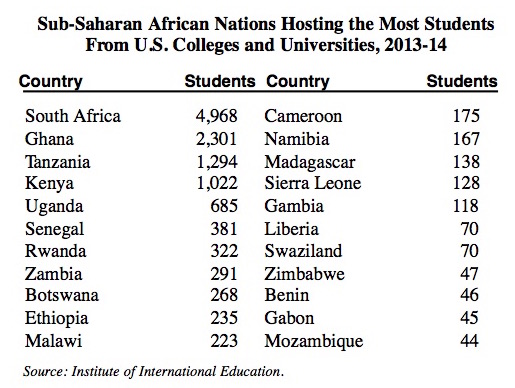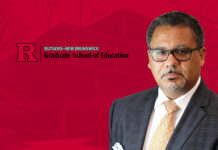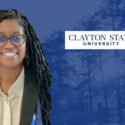 According to new data from the Institute of International Education, more than 304,000 American students studied at foreign institutions of higher education during the 2013-14 academic year. This was up 5.2 percent from a year earlier. A majority of Americans studying abroad attended universities in Europe.
According to new data from the Institute of International Education, more than 304,000 American students studied at foreign institutions of higher education during the 2013-14 academic year. This was up 5.2 percent from a year earlier. A majority of Americans studying abroad attended universities in Europe.
Of all U.S. students studying abroad, 13,266, or 4.4 percent, attended universities in sub-Saharan Africa. The number of American students studying in sub-Saharan Africa declined slightly from the previous year. Sub-Saharan African nations send 2.6 times as many students to American universities as America sends to sub-Saharan African universities.
Among sub-Saharan African nations, South Africa was by far the most popular destination. In the 2013-14 academic year, 4,968 American students studied in South Africa. This was down nearly 7 percent from the previous academic year. Ghana hosted 2,301 American students in the 2013-14 academic year, up more than 10 percent from the previous year. More than 1,000 American students studied abroad in Kenya and Tanzania. Uganda, Rwanda, Senegal, Botswana, Ethiopia, Malawi, and Zambia hosted more than 200 American students. Namibia, Cameroon, Sierra Leone, Gambia, and Madagascar were the only other sub-Saharan African nations hosting more than 100 American college students.
While the data does not reveal what percentage of American students studying abroad in Africa are African Americans, we do know that of the 304,467 American students studying abroad in all areas of the globe, about 5.6 percent, are African Americans. A decade earlier in the 2003-04 academic year, African Americans were 3.4 percent of all American students who studied abroad.










